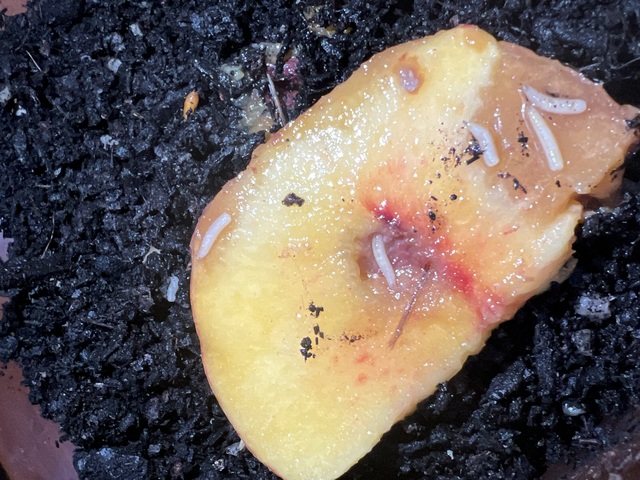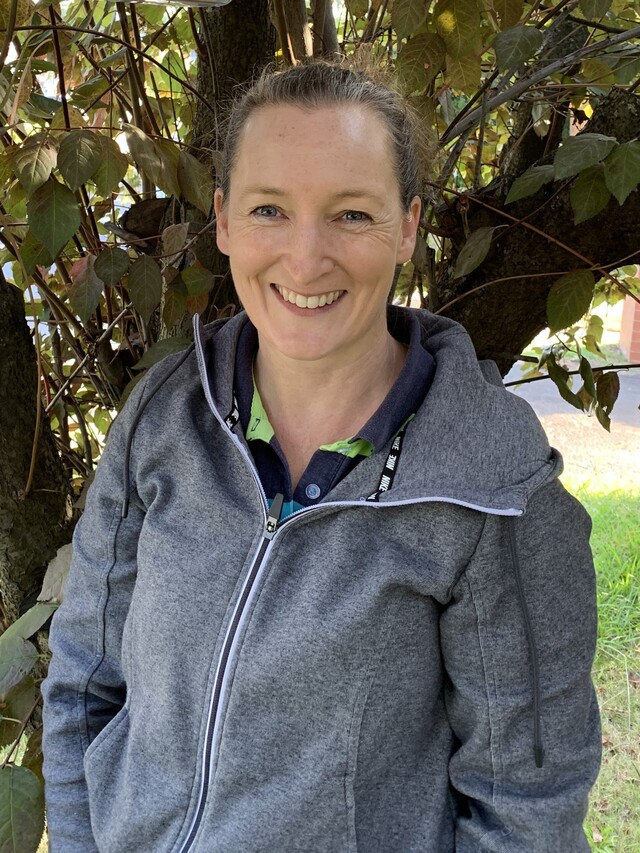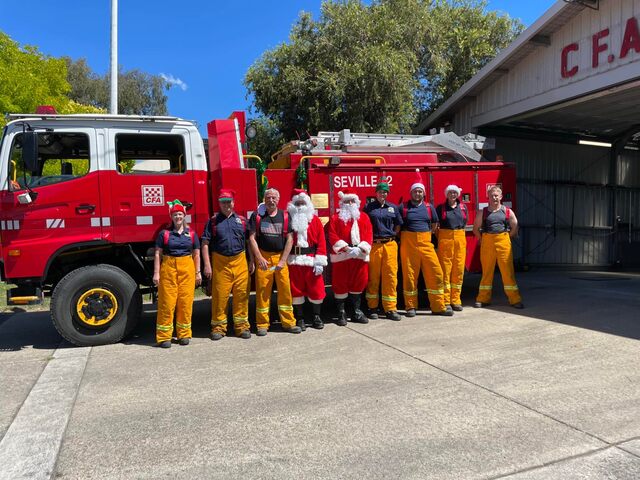The Victorian Government’s Fruit Fly Strategy 2021 to 2025 is expiring at the end of the month, leaving the onus on local growers, from large commercial enterprises to home gardeners, to remain informed and prevent the spread of the pest.
As a result of the strategy expiring, local efforts such as Agribusiness Yarra Valley’s Fruit Fly Free Yarra Valley are set to now no longer be funded and will operate in a reduced capacity, with most of the responsibility for reporting, prevention and trapping left to growers.
Bronwyn Koll has been the regional coordinator for Agribusiness Yarra Valley’s Queensland Fruit Fly (QFF) efforts for numerous years and said it is vitally important that all gardeners, hobby farmers and commercial fruit growers stay informed about the occurrences of QFF in the local areas.
“The Yarra Valley is in a critical stage of pest prevention and pest management regarding QFF, we are experiencing QFF in some locations, yet not others, and only in low population numbers so far, this makes the decision for a land manager to invest in control actions very difficult,” she said.
“QFF can attack anyone’s fruit, take it as a compliment if you are host to QFF, it because your fruit is the tastiest in the district, be aware that this is still a pest in its emerging phase here, not everyone will have experience it yet, and it may not happen every year, although statistically, it is a greater chance of QFF attacking fruit if you experienced it the year before,”
“Good QFF prevention and management is really a series of improvements to your production system, it will take more time to plan your fruit garden layout, or put in a netting structure, but this can have additional benefits of protecting the fruit from other pests and even birds too, better pruning and tree shape can go a long way to improved fruit quality and size.”
Growers are advised to take early precautionary measures to protect against the QFF, as management options are cheaper and have less impact on other insects when populations levels are low.
Ms Koll said most fruit growers (domestic and commercial) in the Yarra Valley are in favour of adopting a management style that uses the least amount of chemicals and the most assistance from biological predators.
“Options preferred for low-pressure QFF management are the use of crop hygiene, male annihilation stations and regular protein bait applications over the season, these treatments are all very specifically targeted at the QFF species and the off-target harm to beneficial insects in a production system is very minimal,” she said.
“If a land manager waits until the QFF population is larger and the fruit damage is increased (economically significant), hygiene, baiting and mating disruption can only make a dent in the QFF population,” she said.
“The tool that is often used in high QFF pressure situations is a program of broad-spectrum insecticide cover sprays (applied over the whole crop), and this can be harmful to beneficial insect predators often used in integrated pest management (IPM) systems to manage crop damaging pests, we don’t want to pressure good IPM by relying on QFF cover sprays to solve an increasing QFF issue.”
While proactive QFF project coordination will end, the fruitflyfreeyv.com website will remain and the ‘Keep Yarra Valley fruit fly free’ Facebook page will remain for now. On the website, growers can find a free e-learning tool, QFF information and report suspected QFF detections via the link to ‘My Pest Guide Reporter’, where the Agribusiness Yarra Valley team can confirm if it is likely to be QFF and confirm the detection, uploading it to a map where detections can be monitored via postcode.
Another advised action after detecting QFF is to inform neighbours, family and friends, a local garden centre or agronomy store, a local garden club or community garden, or a commercial fruit grower who may be able to share information.
Any concerns about unmanaged land or neglected fruit trees should be reported to your local council and for commercial fruit growers, Agriculture Victoria can also offer support to implement changes in pest management.
Residents living along waterways in the region may also be able to contact Melbourne Water for support which is available for the control of weeds like blackberries on recognised creeks in the region.
Ms Koll said the QFF program has proven to have increased people’s awareness and knowledge of QFF issues in the Yarra Valley and when it started in in 2017, many people had never heard of QFF and denied its existence or risk in the Yarra Valley.
“Education sessions and exceptional trapping programs have aided people to better look for QFF and identify it correctly, as the Yarra Valley QFF risk has increased with more fruit movement, more suitable habitat and climate, and the QFF’s resilience to cooler climates, more people have experienced catching QFF or crop loss due to QFF damage,” she said.
“Monitoring for QFF involves both the use of traps specifically designed for QFF, and performing regular fruit checks, anyone producing fruit of any crop size should be observing QFF trends both in their crop and in the local area, so actions can be taken early,” she said.
“As this project is no longer government funded, this area-wide trapping grid isn’t providing the region with information about where QFF is an issue at a given time, we will now need to rely on land managers trapping QFF themselves, and even better – sharing the information so we can all be forewarned of an increased QFF risk near to us.”
Advice for those who bring seemingly good fruit home which turns out to be infested should always process it in a clean and secure area such as the kitchen, freeze the scraps as a general practice, burn or wrap and bin the packaging the fruit came in, especially corflute cardboard where QFF larvae and pupae can hide. Any infested fruit should be boiled (brought to the boil over a period to get all the fruit to temperature) or frozen (placed in a bag in the freezer until frozen solid all the way to the middle). Never use the cardboard packaging as garden mulch or compost and do not compost infested fruit.
The Department of Energy, Environment and Climate Action, which also manages Agriculture Victoria, was contacted for comment.








